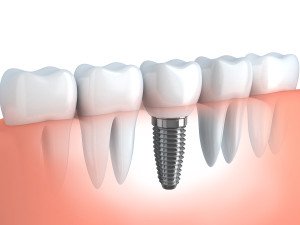Understanding Dental Implants
 These days, there is one specific type of dental procedure that is getting a lot of attention – dental implants, and with good reason. Today’s dental implants are often much easier for dentists to place, provide incredible results, and don’t cost as much as many people assume. We’ve noticed some misconceptions about implants, and some confusion that should be cleared up. The prospect of having implants may seem frightening, but if you learn more about them you’ll likely see that they could be just what you’re looking for as well.
These days, there is one specific type of dental procedure that is getting a lot of attention – dental implants, and with good reason. Today’s dental implants are often much easier for dentists to place, provide incredible results, and don’t cost as much as many people assume. We’ve noticed some misconceptions about implants, and some confusion that should be cleared up. The prospect of having implants may seem frightening, but if you learn more about them you’ll likely see that they could be just what you’re looking for as well.
Dental implants are an alternative to bridges and other dentures. Their benefits are obvious:
• They’re permanent, and eliminate the need to remove dentures at certain times.
• They are cleaned and cared for with regular brushing and flossing, just like real teeth.
• Installed and cared for properly, they’re strong and will last for a lifetime.
• They don’t come dislodged when eating certain foods.
• They look natural.
• They’re often as affordable as dentures.
Sounds good, right? So just how are they installed? The answer is actually surprisingly simple.
• To begin with, the dentist will set anchors in the jaw. After anesthetic is used, a tiny hole is drilled into the jaw and an anchor is placed inside. The jawbone will actually fuse to this anchor over time and turn it into a permanent part of the mouth.
• The new tooth is made from high quality materials, molded and colored to match the patient’s mouth perfectly.
• It’s then set into the anchor. Placed properly, it will look like a real tooth.
It’s worth noting that currently the use of mini dental implants is becoming more widespread. These use smaller anchors, and have less of a recovery period associated with them. With standard dental implants, there is a rest and healing period between the setting of the anchors and the placement of the denture. With mini implants, the dentures are often set into the anchors on the same visit. Additionally, the patient can usually resume eating regular foods far quicker and will experience less discomfort. Mini implants don’t work in all situations, but could be the right call.
If you think that dental implants are a good option for you, you’ll want to speak with a dental professional to find out more. They’re not always the right call, but they’ve changed the lives of many. They’re much more affordable, much less invasive, and far more beneficial than you might think.